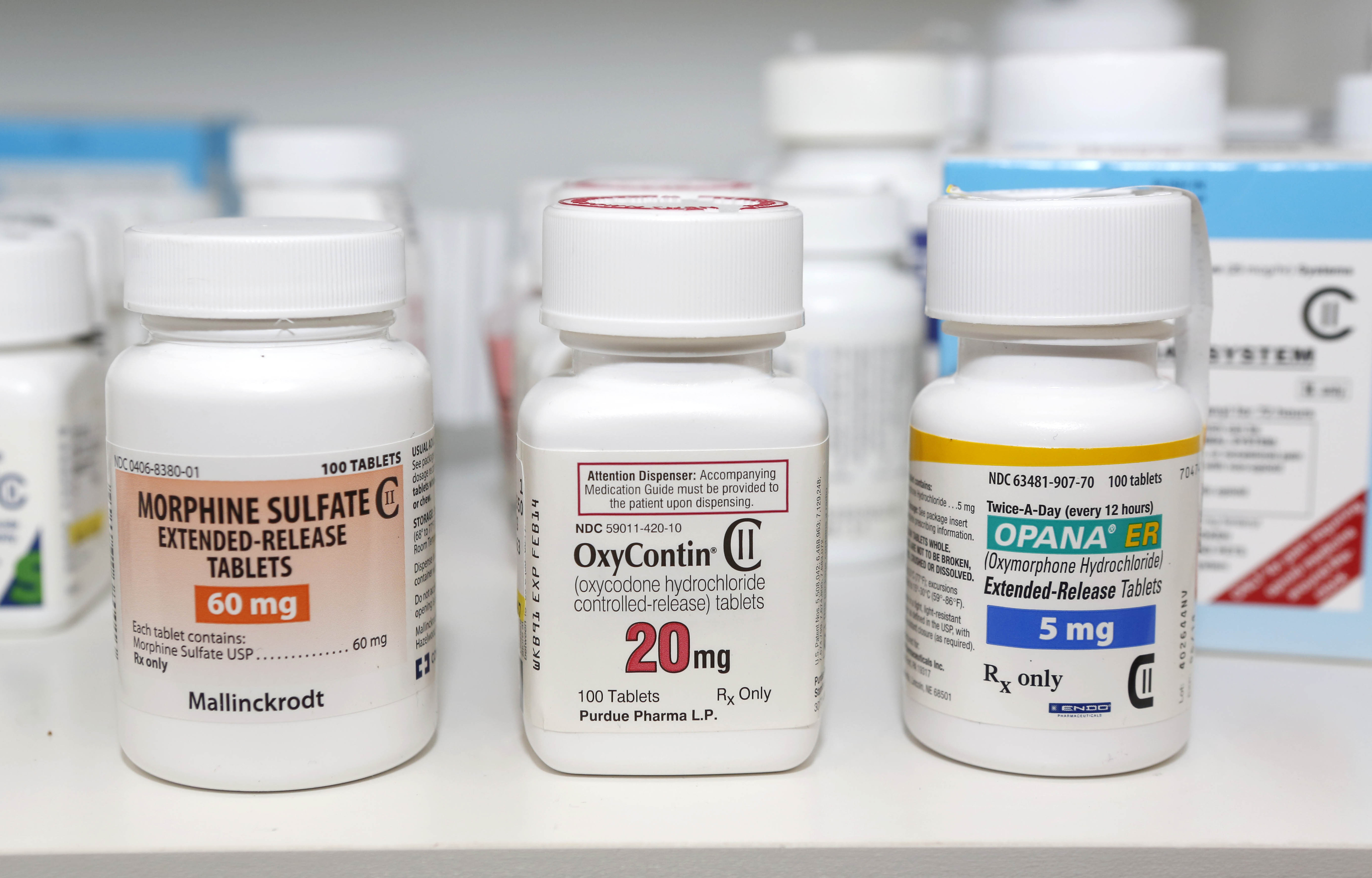NASHVILLE - In a state that ranks No. 2 nationally in terms of prescriptions written for addictive opioid pain medications and where more people died last year from drug overdoses than car crashes, Tennessee's largest health insurer is working to change a culture.
Chattanooga-based BlueCross BlueShield executives on Tuesday described to state Senate Commerce and Insurance Committee members various steps the nonprofit insurer is taking to address problems in areas ranging from educating doctors on best practices for opioid use to influencing prescribing patterns.
Dr. Andrea Willis, BlueCross' chief medical officer, laid out a series of stark Tennessee statistics, including the state's No. 2 ranking for prescriptions, the estimated 1,450 people who died from drug overdoses in 2015 and nearly 1,000 babies born last year to mothers who used painkillers and thus were exposed in the womb to the addictive drugs.
 FILE - In this Jan. 18, 2013 file photo, Schedule 2 narcotics: Morphine Sulfate, OxyContin and Opana are displayed for a photograph in Carmichael, Calif. California doctors will be required to check a database of prescription narcotics before writing scripts for addictive drugs under legislation Gov. Jerry Brown signed Tuesday, Sept. 27, 2016, that aims to address the scourge of opioid abuse. (AP Photo/Rich Pedroncelli, File)
FILE - In this Jan. 18, 2013 file photo, Schedule 2 narcotics: Morphine Sulfate, OxyContin and Opana are displayed for a photograph in Carmichael, Calif. California doctors will be required to check a database of prescription narcotics before writing scripts for addictive drugs under legislation Gov. Jerry Brown signed Tuesday, Sept. 27, 2016, that aims to address the scourge of opioid abuse. (AP Photo/Rich Pedroncelli, File) These and other factors all add up and "that creates a public health crisis in our state," Willis told senators. "This problem is so big that if you're not part of the solution then you're part of the problem."
Willis, joined by Dr. Jeanne James, the chief medical officer of BlueCare, which handles Medicaid programs, and BlueCross' vice president of pharmacy, Natalie Tate, outlined what they described as a "multi-faceted" approach.
It would promote "appropriate pain management and thereby reduce member addiction, overdoses and deaths," Willis explained. "We want to establish policies and procedures to prevent overprescribing, while ensuring those whose medical conditions warrant managed usage will continue to have access."
BlueCross' Tennessee Health Foundation is focusing on community interventions in high-risk areas by providing $1.3 million targeting 44 of the state's most problematic counties and "highest-burden communities" with grants to build capacity among anti-drug coalitions.
Most of the counties are in East Tennessee, with Grundy County among them.
The foundation also has developed a multimedia public awareness and education campaign highlighting the dangers of keeping unused opioids at home where they can be easily accessed by children, teens and other adults.
The campaign is "Count it! Lock it! Drop it! Don't Be an Accidental Drug Dealer." And the foundation is working to provide disposal access as well.
Other steps include a $250,000 foundation grant for overdose antidote training and supplies of Naloxone, which blocks or reverses effects of opiates, to law enforcement.
Other funding includes various programs including The Next Door program in Chattanooga and Nashville, which offers addiction treatment services for women in residential and outpatient settings, and the Helen Ross McNabb Center, which provides services for people with mental illness, addiction and social challenges in 20 East Tennessee counties including Hamilton and Knox.
Describing chronic pain as a "very complex condition," Dr. James outlined how BlueCross is working to support its members with integrated care coordination and specialized support for neonatal abstinence prevention to curb babies exposed to opioids in the womb.
The insurer is also partnering with axialHealthCare on provider education and outreach to support practitioners in minimizing opioid abuse.
And last year, BlueCross began requiring prior authorization for doctors prescribing long-acting opioids to members.
Sen. Ken Yager, R-Kingston, asked whether practitioners might be terminated if BlueCross detects a "pattern of abuse" in prescribing.
James said the move is intended primarily to be educational in nature to alert doctors and others to patterns.
Contact staff writer Andy Sher at asher@timesfreepress.com or 615-255-0550. Follow on Twitter @AndySher1.

